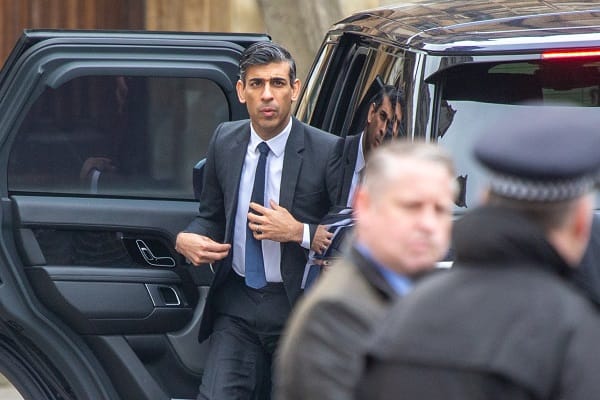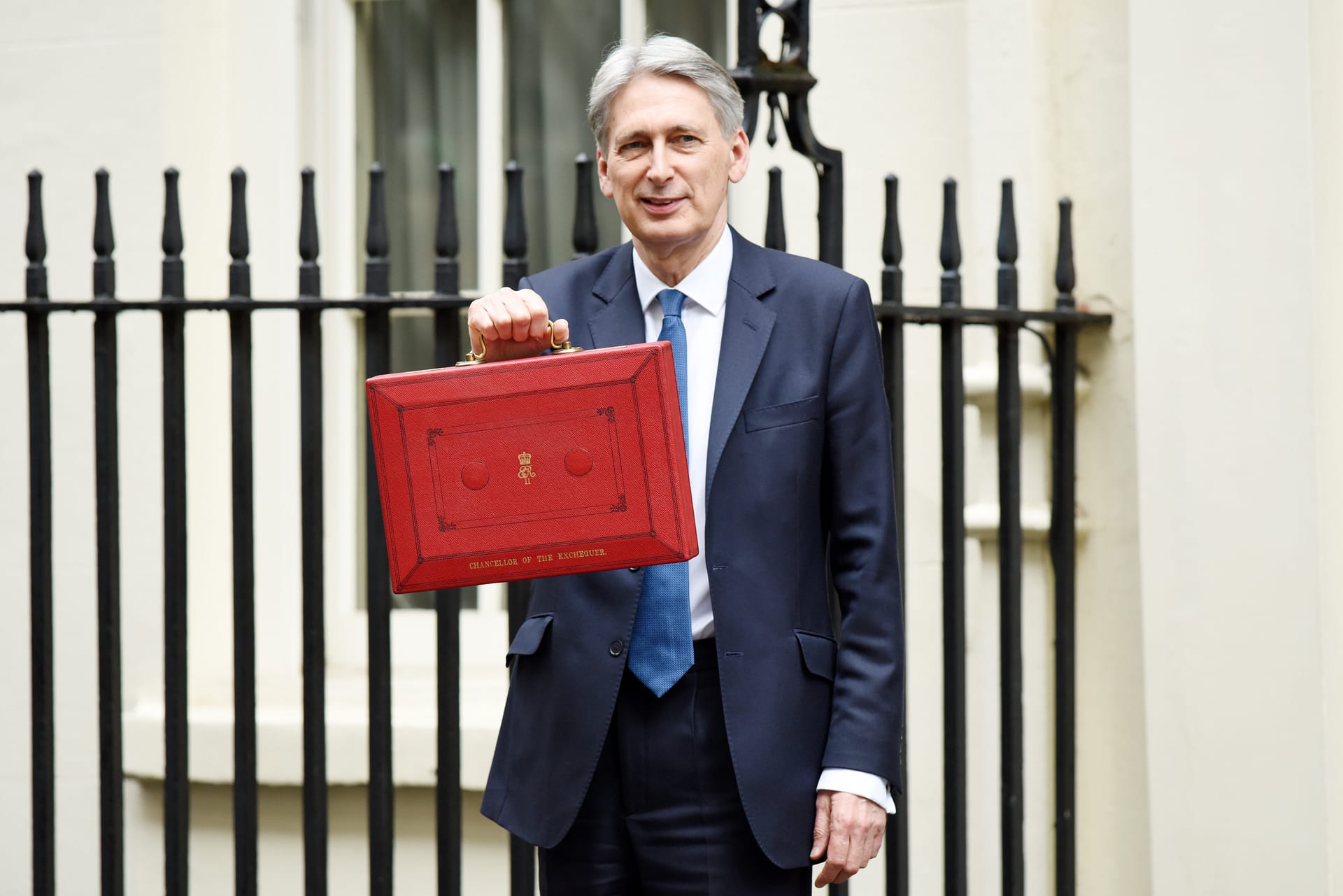With Rishi Sunak and Liz Truss competing to become the next prime minister, both have outlined policies they hope to implement if they are handed the keys to Number 10.
Experts from AJ Bell asses some of the key tax and personal finance policy issues raised in the leadership contest so far, and the challenges facing the eventual winner.
These include: Energy bills & the cost of living, income tax, national insurance, the triple lock, corporation tax, inheritance tax and the marriage allowance.
- Energy bills & the cost of living
Head of personal finance, Laura Suter:
“The first task for any new prime minister will be how to prop up the most vulnerable households in the face of looming energy bills, with the next price cap increase coming less than a month after the victor takes office. While Truss refuses to commit to plans before she gets into Number 10, Sunak has revealed his proposal for more support, particularly for low-income households. He plans to cut VAT on energy bills for all, saving everyone around £200 a year, while also giving additional help to pensioners and those on benefits – despite the fact that billions more borrowing will likely be needed to fund it.
“All Truss has revealed is that she will suspend the environmental and social levies that are added to consumers’ electricity bills. Estimates vary but at the current price cap that would save around £150 a year per household. Considering the leap in energy bills in October is expected to be £1,600 higher than now, that handout will barely touch the sides. Truss originally said she’d rely on tax cuts to help people through the awful winter ahead, but it now feels inevitable that she’ll have to announce additional support to extend the current cost of living handouts.”
- Income Tax
Head of retirement policy, Tom Selby:
“In many ways the leadership campaign between Truss and Sunak has descended into a tax-cutting arms race, with each looking to outdo the other in an attempt to woo Conservative Party members.
“While Truss focused on NI and corporation tax cuts, as well as scrapping green levies, Sunak has pledged to slash the basic rate of income tax to 19% by April 2024 and 16% by the end of the next Parliament.
“The impact of such a move on people’s take-home pay would be significant, although a tax cut in 7 or 8 years clearly wouldn’t do much to help during the current crisis.
“Based on the 2022/23 income tax bands, someone earning £30,000 a year would save around £14.50 a month if income tax was cut to 19% and around £58 a month if the rate was lowered to 16%. Any changes to income tax bands would affect how much different people would benefit from the measure.”
| Annual income | Monthly income | Monthly basic rate income tax threshold | Monthly income tax (current rate) | Monthly income tax (19%) | Monthly saving | Monthly income tax (16%) | Monthly saving |
| £20,000 | £1,666.67 | £1,048 | £123.73 | £117.55 | £6.19 | £98.99 | £24.75 |
| £30,000 | £2,500 | £1,048 | £290.40 | £275.88 | £14.52 | £232.32 | £58.08 |
| £40,000 | £3,333.33 | £1,048 | £457.07 | £434.21 | £22.85 | £365.65 | £91.41 |
| £50,000 | £4,166.67 | £1,048 | £623.73 | £592.55 | £31.19 | £498.99 | £124.75 |
- Impact on pensions
Head of retirement policy, Tom Selby:
“Pension tax relief is granted at your marginal rate of income tax, meaning as things stand a basic-rate taxpayer in England gets 20% relief.
“Basic-rate relief is effectively a 25% pension saving bonus – someone who makes a personal contribution of £80 to a SIPP has this boosted to £100 via basic-rate relief. Higher and additional-rate taxpayers can claim extra tax relief from HMRC.
“If income tax is reduced to 19% then getting £100 in a pension would require the same basic-rate taxpayer to contribute £81, with £19 coming from tax relief.
“Similarly, if basic-rate income tax falls to 16% then so too would basic-rate tax relief, meaning the same person would need to contribute £84 personally to get £100 in their pension, with £16 coming from basic-rate relief.
“This would significantly strengthen the case for the Lifetime ISA (LISA) as a retirement savings vehicle for basic-rate taxpayers. The upfront bonus for a LISA is 25%, the same as basic-rate tax relief as things stand, and withdrawals are tax-free from age 60.
“LISA funds can also be accessed tax-free to put towards the purchase of a first home or if you become terminally ill. Early withdrawals in any other circumstance would trigger a 25% early withdrawal charge.”
- Corporation Tax
Head of investment analysis, Laith Khalaf:
“Corporation tax has been a clear dividing line in the Tory leadership contest, with Rishi Sunak having ordered a rise from 19% to 25% from 2023 as Chancellor, and Liz Truss threatening to rip up those plans to give the UK economy a stimulative jolt.
“But the effects of corporation tax policy are not quite as clear cut as VAT and income tax, which have the potential to provide an adrenaline shot directly to the heart of the UK consumer economy.
“In theory, shareholders stand to be the most direct beneficiaries of lower rates of corporation tax, as it allows for more after-tax profits to be distributed. But on the day Rishi Sunak announced a rise in corporation tax from 19% to 25%, the FTSE 100 rose by 1%, suggesting that as far as the market is concerned, corporation tax policy doesn’t really move the dial.
“Likewise, while taxation will certainly be a factor in where companies invest, it sits alongside other important factors such as input costs, transport links, legal structures, workforce skills, and the proximity of necessary resources and customers. The result is that multinationals might choose to spend the benefits of lower UK corporation tax overseas when taking into account all the factors which inform an investment decision.
“It’s also important to note that even allowing for a rise in UK corporation tax to 25%, this would still be the lowest rate in the G7, according to IFS analysis. One thing that is more certain is the cost of ditching the rise in corporation tax, which alongside the freezing of income tax allowances was one of the key planks in repairing the public finances after the ravages of the pandemic. The increase in corporation tax was set to swell the public purse by £17 billion, though team Truss would argue that this loss would be offset by boosting investment in the economy in the longer term.”
- National Insurance
Head of retirement policy, Tom Selby:
“Liz Truss has is reportedly considering scrapping the social care National Insurance levy as soon as she enters office.
“The levy was introduced in April this year with the stated aim of funding proposed reforms to the UK’s creaking social care system.
“In 2022/23 the Government simply added 1.25% to the National Insurance rate on workers’ pay, with the plan then to separate the levy out on payslips from April next year. The dividend tax rate was also increased by 1.25 percentage points.
“Of course, changing the label makes no difference to taxpayers. As things stand, annual earnings up to £12,570 pay 0% National Insurance, with earnings between £12,570 and £50,270 subject to NI at 13.25%. Any earnings above this level pay NI at 3.25%.
“The impact of cutting those rates back by 1.25 percentage points would therefore depend on the income you earned. Someone earning £30,000 a year would pay £18.15 less NI per month under Truss’ plan – a helping hand but one that is dwarfed by the energy price hikes expected in October and January.
“The move also calls into question how the planned social care reforms, which include a cap on lifetime costs, will be funded. While the idea of a hypothecated tax is of course a nonsense in reality – all tax and NI goes into the same pot – Truss will be forced to explain how social care reforms will be funded in light of the decision to scrap the hike.”






Leave a Comment